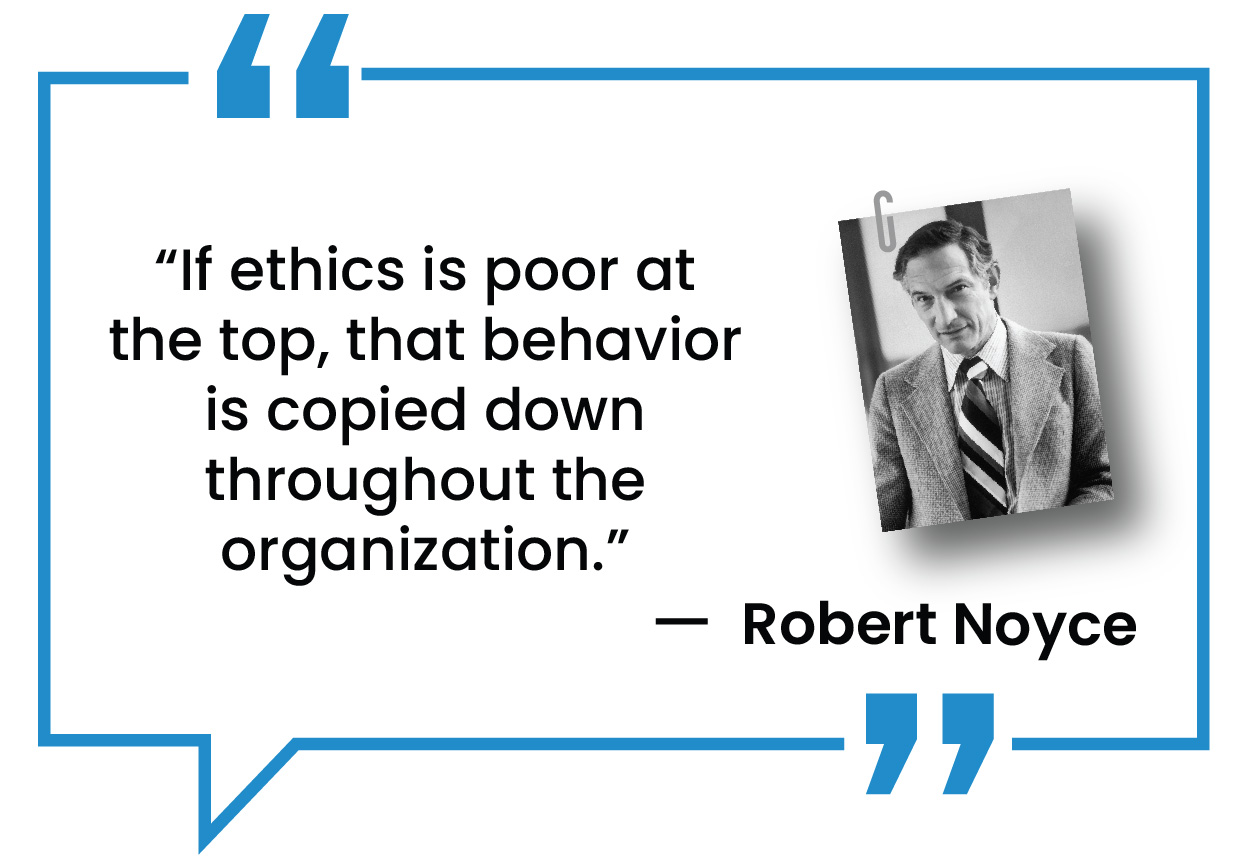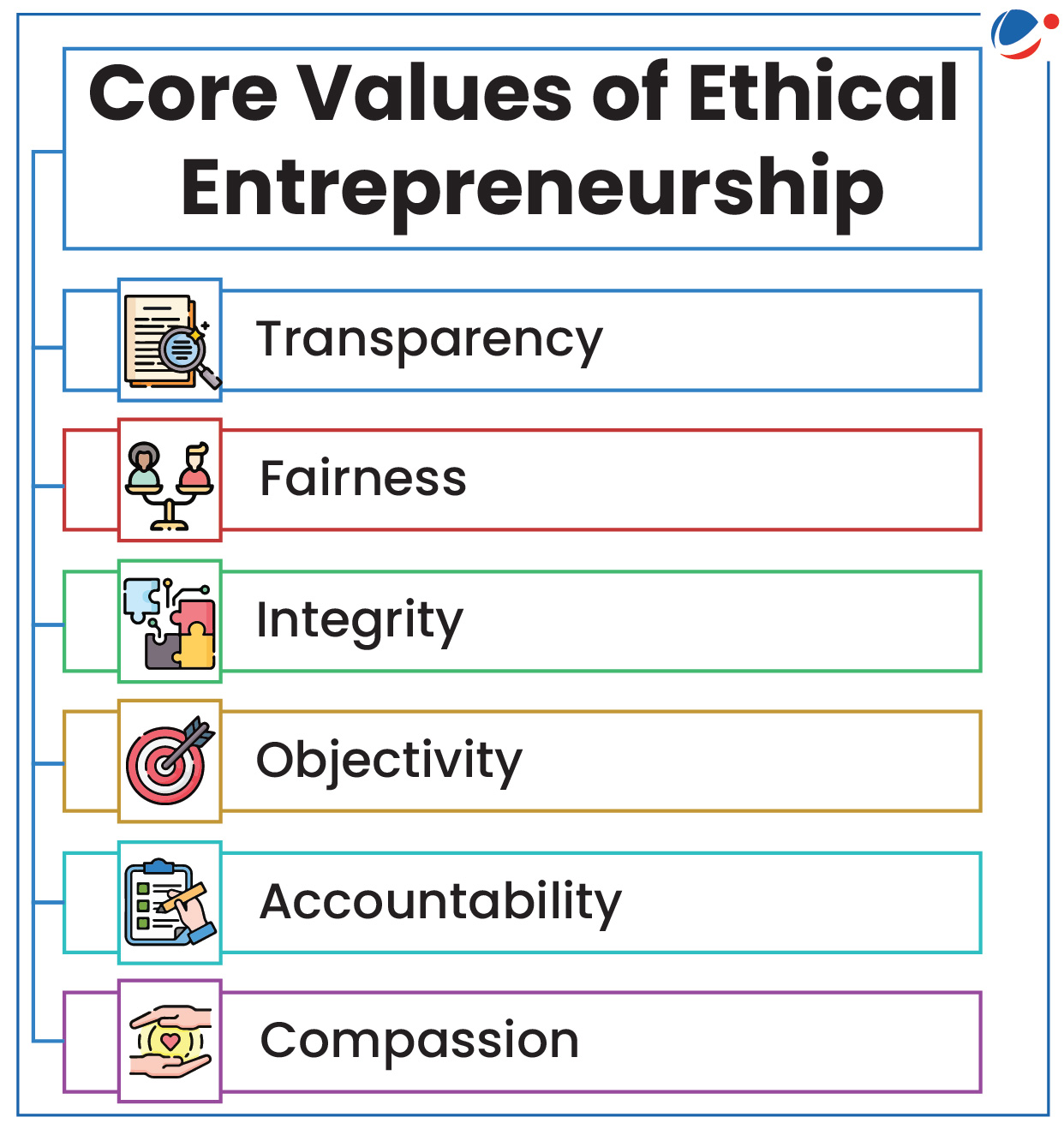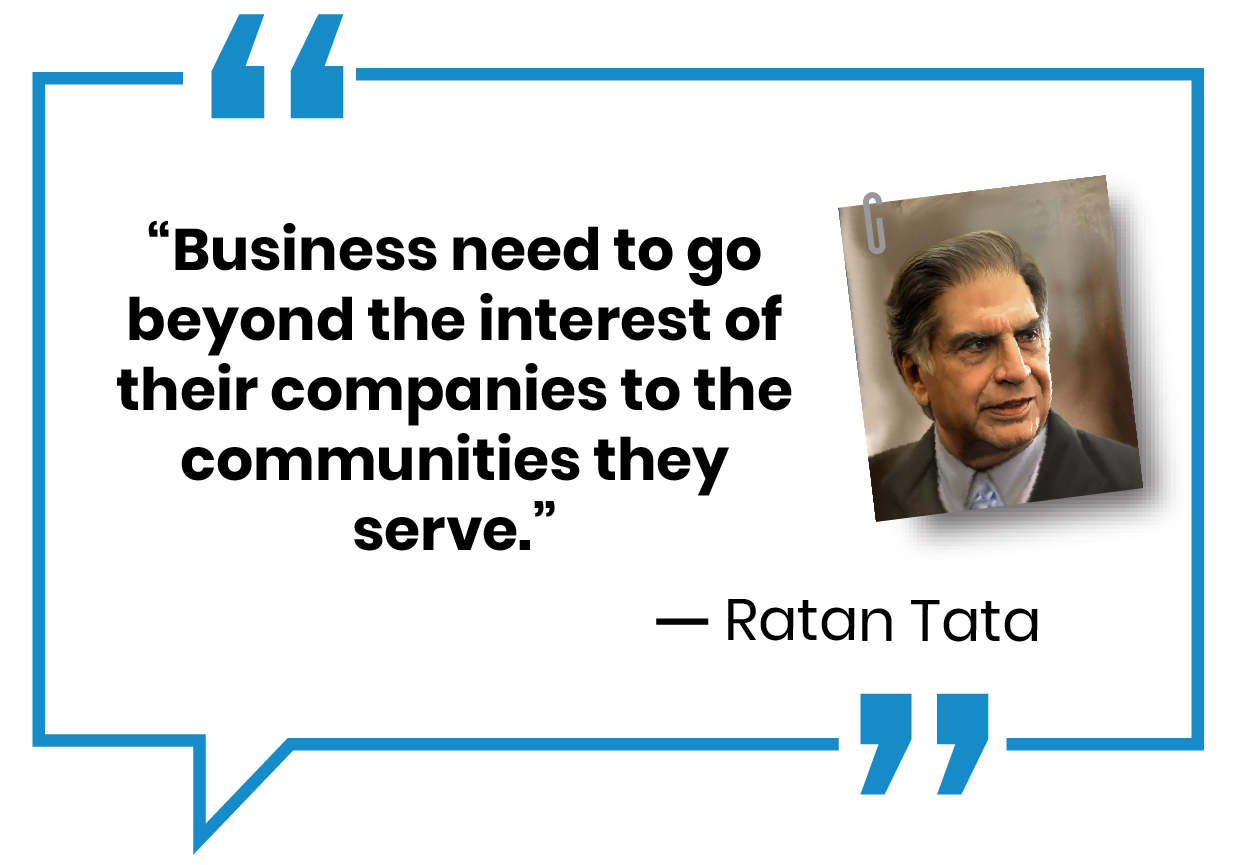Introduction
Recently, a jury met to recognise the most brilliant young leaders of corporate India for the 10th edition of 40 Under Forty for a publication. A member of jury highlighted that certain young entrepreneurs not only demonstrated professional and business acumen but also believed in giving back to society.
Stakeholder and their Interests
Stakeholder | Interests |
Entrepreneurs |
|
Customer |
|
Government/Regulatory Authorities |
|
Employees |
|
Business Partners/Dealers |
|
Investors |
|
| Community/ Non-Governmental Organization (NGO) |
|

Ethical Issues faced by Entrepreneurs
- Conflict of Interest: Entrepreneurs often face conflict between maintaining profitability of company and social impact. e.g., Decline of Byju's due to poor financial decisions
- Environment Responsibility: In entrepreneurship, environment responsibility is still not a considered as a key priority. e.g., In 2019, Reliance Industries was fined for ecological loss.
- Adopting Wrong means: Sometimes entrepreneurs take wrong means to achieve end, for instance, manipulating financial statement of the business to attract investment. e.g., Satyam Scam 2009 (accounting fraud)
- Entrepreneurs sometimes violate regulations related with Intellectual Property Rights (IPR) such copyright, patent etc.
- Work Culture/Fair treatment with Employees: In order to complete task on time, many times, management pushes employees to work extra, this creates dissatisfaction among employees.

Adopting Ethical Entrepreneurship: Navigating Ethical Issues in Entrepreneurship
- Ethical Entrepreneurship is based on certain core values and principles (refers to infographics). It gives adequate priority to social responsibility and environmental sustainability along with Profitability.
- It follows the principles of corporate governance.
- Corporate governance ensures that businesses have appropriate decision-making processes and controls in place so that the interests of all stakeholders (shareholders, employees, suppliers, customers and the community) are balanced.
- Need/Benefits of Ethical Entrepreneurship: Building Trust and reputation of brands, Sustainable Growth of the companies, etc.
Key Guiding Principles for Ethical Entrepreneurship | |
|---|---|
Utilitarianism Ethics | Advocates actions that foster happiness or pleasure and oppose actions that cause unhappiness or harm. |
Deontology Ethics | Immanuel Kant's Deontology ethics says that rational humans must scrupulously uphold their moral obligations, regardless of the result. |
Virtue Ethics | Emphasises that practicing qualities like honesty, courage, justice, charity, etc., one grows into an acceptable and righteous life. |
Stakeholder Theory | Theory argues that a firm should create value for all stakeholders, not just shareholders. |
Ways to Integrate Ethical Principles into Entrepreneurship
- Balancing Profit and purpose: Social entrepreneurship is good example of this approach. It seeks to solve a social need while earning a reasonable financial return. e.g., eHealthPoint venture, provides primary health consultations to rural or remote communities.

- Stakeholder Engagement/Foster Open Communication: Entrepreneurs should encourage employees, customers, etc. to speak up about any ethical concerns or violations they observe. e.g., TATA Steel has developed a robust stakeholder engagement process.
- An independent whistle-blower programme (to report the misconduct, fraud, or indiscipline to senior officers) can be established.
- Ethical sourcing of raw materials: It will help in curtailing exploitative and unfair trade practices at the input stage. e.g., Ben & Jerry's, renowned ice-cream manufacturer, has a long-standing commitment to ethically source ingredients.
- Lead by Example: Entrepreneurs need to set example for ethical practices and responsible conduct. Their commitment to ethical leadership will inspire your employees to follow suit.
- e.g., In 2020, Wipro Ltd, along with associate firms, committed Rs 1125 crore for the COVID-19 pandemic outbreak.
- Transparency and Accountability: Entrepreneurs should foster a culture of transparency and accountability by openly disclosing their business practices, impact metrics, and progress towards sustainability goals. This builds trust with stakeholders and enables informed decision-making.
- Formulating Code of Ethics/Conduct: An ethical code outlines a set of principles and standards that guide ethical behaviour within an organization. e.g., Raymond has adopted Code of Conduct and Ethics.
Conclusion
In the recent time, the trend of entrepreneurship has gained momentum in India. By this approach, they will able to maintain balance between their profitability and social impact. In the initial phase, it will increase cost of compliance, e-alignment of business processes etc., but in the long time it will ensure sustainable development.
Check your Ethical AptitudeVivek has recently graduated from a reputed Engineering College. He completed his education with the help of an education loan. Along with his few friends, he started a start-up that used to manufacture medical equipment. To sustain the business, a start-up needs big orders. Tarun's (one of the partners of the start-up) relative is currently posted as a secretary in the Health Ministry of a State. The Secretary is ready to help the start-up in getting contracts by providing confidential information on the on-going bidding process of Contracts for procuring medical equipment. Tarun and a few other members are in favour of using the opportunity while Vivek thinks that it is against ethical entrepreneurship. Based on the given case study, answer the questions given below. (a) Identify the ethical dilemma faced by Vivek and his partners. (b) What approach should be followed by Vivek to deal with the situation? |






